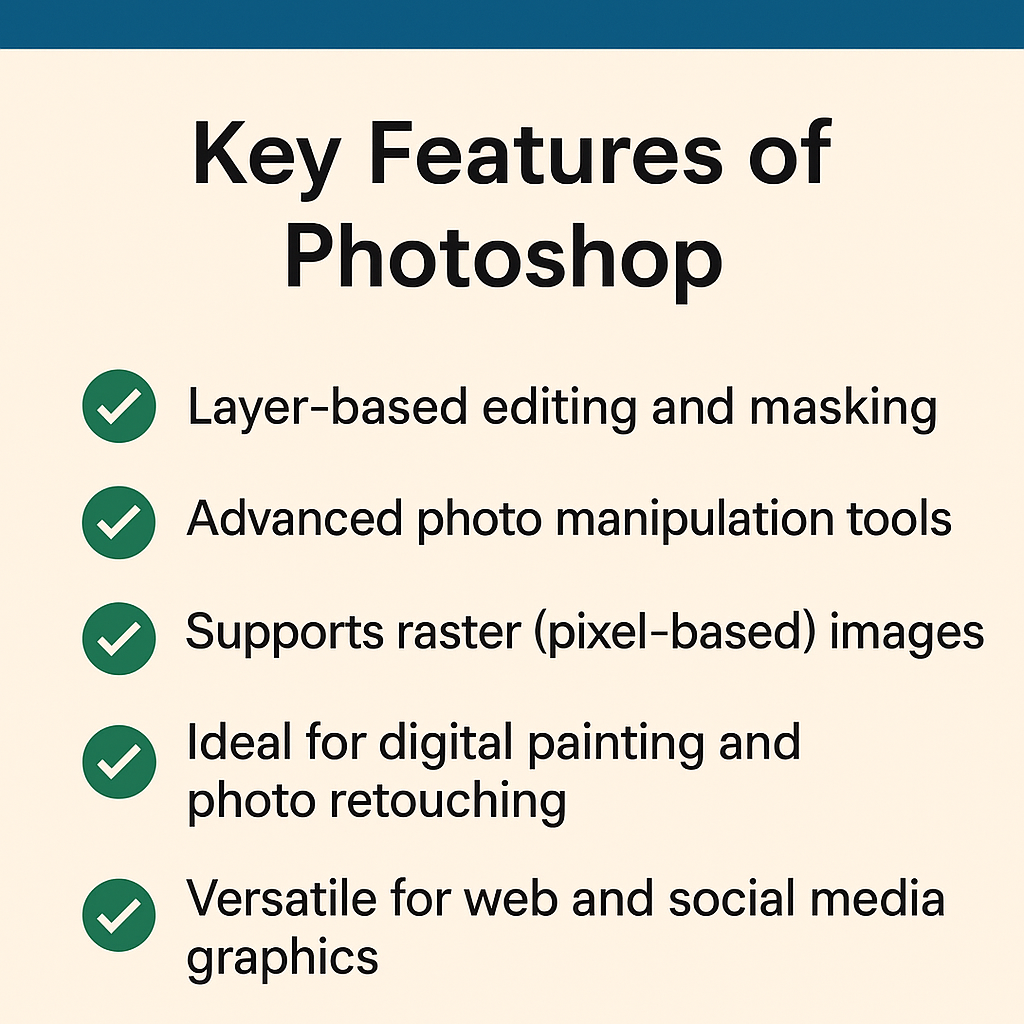When it comes to web development, one common debate is whether to use WordPress or build a website from scratch with custom code like HTML, CSS, and JavaScript. While custom coding offers flexibility, WordPress has evolved into a powerful framework that offers many time-saving features. However, there are still misconceptions surrounding WordPress. Many people believe it’s only useful for simple websites and blogs, or that it can’t handle more complex web applications. In this blog WordPress vs Coding, we’ll explore why developers should consider learning WordPress and how it can expand the scope of projects they can tackle.
What is WordPress Really?

WordPress is often misunderstood as just a page builder or blogging platform, but it’s much more than that. In reality, WordPress is a powerful web framework, much like ReactJS or Django. While ReactJS is mainly focused on rendering data on the frontend and Django sets up a lot of the backend structure, WordPress provides a comprehensive solution that includes both frontend and backend functionality right out of the box.
Unlike traditional page builders like Wix, which are limited in terms of customization, WordPress gives developers the ability to build complex web applications. It’s a flexible framework that allows for custom post types, APIs, user roles, and more, making it a robust tool for creating websites of varying complexity levels. So, whether you’re building a blog, an e-commerce site, or a custom web app, WordPress can handle it—just like ReactJS or Django, but with much less effort needed to get up and running.
Key Features of WordPress That Save Time

WordPress offers a range of built-in features that significantly reduce development time compared to custom coding. Let’s explore some of these key features:
- User Login and Role-Based Access Control (RBAC): WordPress provides user login flows and a password recovery system right out of the box. Additionally, it includes role-based access control, allowing developers to manage user permissions with ease. For example, an administrator can access the entire site, while a contributor can only add content. Building these features from scratch using custom code can be time-consuming and complex, but WordPress handles all the heavy lifting.
- Visual Editor: With WordPress, content creators don’t need to write HTML or CSS to add a new page or blog post. The visual editor enables a user-friendly interface that lets them create content quickly, without the need for custom code. This is a huge time-saver compared to manually coding each page and ensuring compatibility with different devices and browsers.
- Media Management: WordPress simplifies media management by offering an easy-to-use media library. When uploading images or files, WordPress automatically optimizes them, creating multiple sizes for various screen resolutions, and links them to the correct content. Without this feature, developers would need to manually handle media distribution, optimization, and database linking.
These features, combined with WordPress’s extensive plugin ecosystem, provide a foundation that can drastically cut down on development time. While custom coding these functionalities would take months, WordPress makes them available instantly, allowing developers to focus on higher-level tasks and more complex customizations.
Expanding Development Opportunities with WordPress
WordPress offers developers the ability to take on a much wider variety of projects, including those that would otherwise be difficult or time-consuming to tackle using custom code. One such opportunity is working with local businesses that need simple yet efficient content management systems (CMS). These businesses often require websites where they or their teams can easily add and manage content—something that can be incredibly time-consuming to build from scratch.
For instance, building a CMS from custom code would involve developing features like:
- A user-friendly admin dashboard.
- A way for users to add and edit content easily.
- Media management capabilities.
- Role-based access control for different users.
- Seamless SEO features.
Creating these from the ground up would take months or even years, depending on the complexity of the site. WordPress, on the other hand, provides all of these features out of the box, making it much faster to develop and deploy. By mastering WordPress, developers can expand their service offerings to include projects for local businesses, bloggers, restaurants, fitness coaches, and more—clients who need a functional website but don’t require a custom-built solution.
WordPress is perfect for these types of clients because it enables them to manage their site content without needing ongoing development support. This makes it a highly scalable option, allowing developers to take on more projects and cater to a diverse range of industries, all while reducing the time spent on building out essential functionalities.
WordPress and Custom Web Apps

While many people view WordPress primarily as a tool for blogging or simple websites, it can actually be leveraged to build complex web applications as well. In fact, WordPress is a generic framework that provides the flexibility to handle custom functionality, just like other web development frameworks such as ReactJS or Django. This opens up the possibility of using WordPress to create anything from an e-commerce store to a sophisticated web application.
For example, YouTube and UberEats are both major web applications that have used WordPress as the foundation for their platforms. Although these are highly complex sites with large-scale operations, WordPress serves as the core to manage content, users, and functionalities like payments, user profiles, media, and more. What makes WordPress an attractive choice is its plugin architecture and the custom post types feature, which allows developers to create custom data structures and workflows specific to their application needs.
In fact, WordPress’s ability to create custom APIs for these data types makes it no different from building web apps with HTML, CSS, and JavaScript frameworks. The only distinction is that WordPress offers a more streamlined process for handling various application features, including:
- Media Management: With WordPress, you can easily manage images, videos, and other media types without needing to build an entire media handling system from scratch.
- User Management: WordPress comes with built-in user authentication and role-based access control, features that would take significant time to code from the ground up.
- SEO and Performance: WordPress is optimized for SEO out-of-the-box and can handle performance considerations like image resizing, caching, and content delivery networks (CDNs), saving developers time in performance tuning.
Thus, WordPress not only enables developers to create custom web applications with complex functionality but also empowers them to do so more efficiently and with greater ease. It’s not just a blogging platform—it’s a flexible tool that can power large-scale applications with the right customization.
How WordPress Works Like Other Frameworks

One of the most common misconceptions about WordPress is that it’s limited to simple websites or blogs. In reality, WordPress operates similarly to other popular web development frameworks like ReactJS, Django, and Ruby on Rails, especially when it comes to building custom applications. Here’s how:
Custom Post Types
At the heart of WordPress’s flexibility is its Custom Post Types (CPTs). In WordPress, a “post” refers to a unit of content—usually a blog entry or page. However, the platform allows you to create custom post types to represent various types of content, such as products, events, videos, or even real estate listings. These are akin to custom data structures that you would create in other frameworks.
For example, if you wanted to build a movie database web application, you could create a custom post type for movies, with data fields for genre, cast, release year, and more. This customization is similar to how you’d define models in frameworks like Django or Rails, where you set up your data schema and interactions in code.
APIs and Custom Endpoints
Another key feature that aligns WordPress with traditional frameworks is its ability to create custom APIs. WordPress has a robust REST API, which allows developers to create custom endpoints for interacting with their data. This API is incredibly flexible, enabling developers to fetch, manipulate, and display data as needed.
Let’s say you’re building a real-time notification system for users. You could use the REST API to create an endpoint that allows the system to pull notifications from a database and push them to users dynamically, just like you would with Node.js or Express. This gives WordPress the ability to support complex, real-time web apps.
The REST API is also essential for integrating WordPress with third-party services. You can send and receive data to external platforms, further expanding WordPress’s functionality to match custom-coded applications.
Theme and Plugin Customization
Unlike other platforms where themes are just about aesthetics, in WordPress, themes are like application layers. WordPress themes control the visual aspects but also define how content is displayed and interacted with. Within themes, developers can create custom templates for specific post types or even custom API endpoints to serve content in unique formats.
Moreover, WordPress offers an extensive plugin ecosystem, which lets you extend the platform without reinventing the wheel. These plugins provide functionalities such as e-commerce, booking systems, membership sites, and more, all of which can be tailored to suit your needs. By combining themes, plugins, custom post types, and the REST API, developers can create sophisticated, scalable web apps in much the same way they would with frameworks like ReactJS or Django.
WordPress vs Custom Coding
When you’re custom coding a web application with HTML, CSS, and JavaScript, you have to manually build out all these features: custom data structures, APIs, user authentication, media management, and much more. WordPress, on the other hand, provides these capabilities right out of the box, saving developers significant time and effort. For example, the time it would take to develop a user role system or a media gallery from scratch is already built into WordPress through plugins and core functionality.
In summary, WordPress isn’t just a simple content management system—it’s a robust framework capable of handling complex web applications. Through custom post types, the REST API, themes, and plugins, WordPress works just like other development frameworks, giving developers the power to create dynamic, feature-rich applications with far less effort.
WordPress vs. Custom Coding: Job Market Perspective
When it comes to career opportunities, the landscape for WordPress developers and custom coding professionals often presents different challenges and rewards. Understanding these distinctions is crucial for making an informed decision about where to focus your skill development, especially when you’re considering career prospects versus personal projects.
WordPress in the Job Market
While WordPress dominates the content management system (CMS) landscape, the job market for WordPress development can have certain limitations. Many positions for WordPress developers focus on building websites, creating themes, or managing plugins for small to mid-sized businesses, digital agencies, or freelance clients. These roles, while abundant, are often centered around standardized solutions rather than highly customized or complex web applications.
Additionally, WordPress’s reliance on pre-built themes and plugins can sometimes lead to fewer opportunities for creative and deep technical challenges. Since many WordPress websites are built using established templates and plugins, the job market for WordPress developers can be somewhat saturated, with a high supply of developers and relatively lower pay compared to positions focused on custom web development or software engineering.
However, this does not mean that WordPress is irrelevant in the job market. Many businesses need experienced WordPress developers to create scalable websites, manage content, and optimize user experience. For agencies, e-commerce businesses, and local businesses, WordPress is often the go-to solution due to its cost-effectiveness, ease of use, and ability to deploy quickly. There is still a significant demand for WordPress specialists, but the opportunities may be more routine compared to other forms of development.
Custom Coding in the Job Market
On the other hand, positions requiring custom coding skills—such as full-stack development, backend development, or specialized software engineering—are often associated with more complex and high-paying job roles. With technologies like ReactJS, Django, Ruby on Rails, and Node.js, developers can build dynamic, interactive applications with full control over their architecture, performance, and user experience. These skills are highly sought after in larger tech companies, startups, and enterprises that focus on developing unique, cutting-edge software products and services.
Custom coding offers a broader scope for creative freedom and the chance to work on more sophisticated projects. Roles such as software engineers, data scientists, and app developers usually demand expertise in custom coding languages and frameworks, which are necessary for building web applications that require extensive interactivity, real-time functionality, or scalability.
Why Learn WordPress for Personal Projects
Despite the potential limitations of the WordPress job market, there are strong personal advantages to learning WordPress. For individual projects, whether it’s a personal blog, portfolio site, or even a small business website, WordPress offers a wealth of tools and pre-built solutions that can be deployed quickly and efficiently. For many entrepreneurs, hobbyists, and freelancers, WordPress provides a low-cost, time-saving solution to getting a website or online business up and running without the need to hire a developer or spend hours writing custom code.
Learning WordPress for personal projects allows you to quickly iterate, modify, and manage websites on your own. Whether you want to build a blog, an e-commerce store, or a personal portfolio, WordPress offers flexibility that makes it perfect for self-driven initiatives. Additionally, understanding the platform will help you to easily integrate plugins, themes, and third-party tools to enhance functionality without having to reinvent the wheel.
The Middle Ground: Balancing WordPress and Custom Coding
For those looking to expand their job prospects or develop highly specialized skills, the best approach is often to balance WordPress with custom coding. By mastering both areas, you gain the flexibility to work on WordPress projects where speed and efficiency are essential, while also having the ability to tackle custom-coded applications for more complex and demanding tasks. This makes you a versatile developer who can tackle both client-driven WordPress projects and high-level custom development jobs, providing you with a more comprehensive skill set that appeals to a wider range of job markets.
In summary, while the WordPress job market may not offer the same breadth of opportunities as custom coding in the tech industry, it is still an essential tool for creating websites quickly and efficiently, especially for personal projects. Learning WordPress is a valuable skill that will empower you to build and maintain your own digital presence, while custom coding remains crucial for more complex, high-paying roles in the software development field.
Final Thoughts
In conclusion, WordPress is undeniably a powerful and versatile tool for developers, offering an efficient and user-friendly platform to build websites quickly. It is an excellent choice for personal projects, small businesses, and agencies that need to create websites with minimal development time and effort. WordPress’s flexibility, combined with its robust features like user management, media handling, and an extensive plugin ecosystem, makes it a go-to solution for many.
However, when it comes to the job market, WordPress development can be more limited compared to custom coding roles. Positions often focus on standard tasks such as theme and plugin development, which can lead to a saturated market with fewer opportunities for advanced or highly specialized positions. The demand for custom-coded applications—which provide more creative freedom and technical challenges—is typically greater, and roles in this space often come with higher salaries and more complex projects.
That said, learning WordPress remains a valuable skill for developers, especially for personal projects or smaller-scale businesses. The best approach is to strike a balance between mastering WordPress for rapid website deployment and learning custom coding for larger, more intricate projects. This balance allows developers to be versatile, capable of tackling both routine WordPress tasks and sophisticated custom web apps, thereby expanding their career opportunities and skillset.
FAQs
Is WordPress only for building blogs?
- No, WordPress can be used for e-commerce, learning management systems, podcasts, and custom web apps.
Why should developers learn WordPress instead of just custom coding?
- WordPress saves time with pre-built features and opens up more project opportunities, including complex applications.
Can I build complex web applications with WordPress?
- Yes, WordPress allows for complex apps using custom post types and APIs, similar to custom coding.
What are some features in WordPress that save development time?
- Features like a visual editor, user authentication, and media management reduce development time significantly.
Is there a demand for WordPress developers in the job market?
- The demand exists but is focused on simpler projects; advanced roles usually require custom coding skills.




